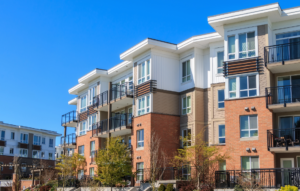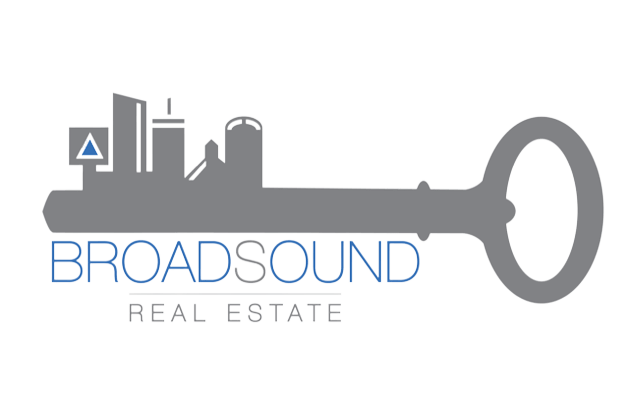There’s something special about owning your own home. It is undoubtedly the ultimate investment one can make that will give you peace of mind for years.
Buying a home is a milestone after consistent hard work, saving, and proper preparation with the right real estate agent.
Your home is likely to appreciate over time, providing you with a solid return on your investment. For some, it is the realization of the American Dream – owning a piece of property that is truly their own. Others consider purchasing their first home a worthwhile investment from a practical standpoint.
Whatever the reason, there’s no denying the benefits of owning a home. Some benefits of homeownership include financial stability, social status, and more opportunities to build equity.
If you’re on the fence about whether or not homeownership is right for you, learning more about the unique benefits of owning a home may help you make your decision.
1. Financial benefits of buying a home:
There are many financial benefits to homeownership. Perhaps the most obvious benefit is that you have a place to call your own. You’re not paying rent to a landlord, so you have more money to save or spend as you please.
When you pay rent, you’re paying for someone else’s mortgage. However, you’ll be paying for your own mortgage after buying a house. The good thing is that you could do the same thing your landlord does: have someone else pay your mortgage!
If you rent out a room or a unit in your house (if it’s a multi-family), you can cover your mortgage payments and even make a profit.
Sounds good, right?
Sign up for a free consultation to learn more about this.
Among the financial benefits of owning a home, we can find the following:
a) Fixed mortgage payment
When you own a home, you have a fixed monthly mortgage payment that you can budget for. This gives you a sense of security and stability that renting a home can’t provide.
Also, remember that by paying a mortgage, you’re investing in something that is yours. Money for rent is an expense, and it only disappears. However, money for your own mortgage is buying you a property (that will increase its value over time) and growing your list of assets.
b) Building equity
Owning a home can also help you build equity. A home’s equity is its value as an asset. As you make mortgage payments and your home appreciates in value, your equity increases. You can access this equity through a home equity loan or line of credit, which can give you extra cash for major expenses or emergencies.
c) Good credit history
Buying a home can help you build a strong credit history. When you own a home, you are responsible for making your monthly mortgage payments on time. This shows lenders that you are a responsible borrower and can help you qualify for better loan terms in the future.
It may be challenging to get approved for your dream house with the seven rooms, the gym space, or even the pool right now. But remember that you gotta start from somewhere. After consistently paying a mortgage for one house, your odds of qualifying for a bigger house increase substantially.
Additionally, the interest you pay on your mortgage is tax-deductible, saving you money at tax time.
d) Tax breaks
Another financial benefit of homeownership is that you may be able to take advantage of certain tax deductions. For example, you can deduct the interest you pay on your mortgage from your federal income taxes. This can save you a significant amount of money each year.
Overall, there are many financial benefits to homeownership. It can give you a place to call your own, help you build equity, and provide tax advantages. If you’re considering buying a home, be sure to talk to a professional real estate agent to see if it’s the right decision for you.
2. Social Advantages of Homeownership:
Homeownership has several social benefits. It can help create stable and strong communities and give individuals and families a sense of pride and accomplishment.
Homeownership can also help to build social cohesion, as neighbors come together to help maintain and improve their shared living environment.
The benefits of owning your own home extend to your health as well. Studies have shown that homeownership is associated with better mental and physical health, lower stress levels, and increased life satisfaction.
In addition, homeownership provides opportunities for social interaction and involvement in the community. All of these factors can lead to improved health and well-being.
Additionally, homeownership can provide opportunities for social interaction, networking, and intergenerational transfers of knowledge and resources.
Finally, homeownership can help create a sense of place, attachment, and belonging, promoting individual and community well-being.
3. Tax-related benefits of buying a home:
The tax benefits of homeownership are numerous and can be extremely valuable to taxpayers. Some of the most common benefits include the mortgage interest deduction, the property tax deduction, and the capital gains exclusion.
These benefits can save homeowners thousands of dollars each year and can be a significant factor in deciding whether or not to purchase a home.
a) Mortgage interest deduction
The mortgage interest deduction is one of the homeownership’s most well-known tax benefits. This deduction allows taxpayers to deduct the interest paid on their mortgage from their taxable income. This can be substantial savings, particularly for those in high tax brackets.
b) Property tax deduction
The property tax deduction is another significant benefit, allowing taxpayers to deduct the amount of property taxes paid from their taxable income. If you make improvements to your home, you may also be able to deduct the cost of those improvements from your taxes. This deduction can also save homeowners thousands of dollars each year.
c) Capital gain exclusion
The capital gains exclusion is another important tax benefit of homeownership. If you sell the house you are living in, you will not have to pay taxes when you sell it. However, if you have a multi-family and live in one unit while renting the others, then you would have to pay income tax on the rented units.
Hint: There is a way to avoid paying taxes on the gains from the units you rented in your home if you use that money to buy another property. This is due to section 1031 of the Internal Revenue Law, which allows a seller to delay paying taxes on a property sold for capital gains by exchanging it for a higher value property.
d) Imputed rent
When you own your own home, you are effectively paying yourself “imputed rent” – that is, the rent you would otherwise be paying to a landlord. This imputed rent is not taxed, reducing your taxable income.
The tax benefits of homeownership are numerous and can be extremely valuable to taxpayers. These benefits can save homeowners thousands of dollars each year and can be a significant factor in deciding whether or not to purchase a home.
Now let’s take a look at a few differences between owning a house and renting one.
Ownership vs. renting
There are many aspects in which homeownership is better than renting.
1. Freedom
To begin with, when you own your own home, you have the freedom to make any changes or improvements you want.
You’re not subject to a landlord’s approval, and you can tailor your home to suit your specific needs and taste. Additionally, as a homeowner, you’ll build equity in your property over time, which can be a valuable asset. On the other hand, renters don’t have any equity in their rental units.
2. Consistency
Homeownership is a much more predictable expense than renting. When you own a home, you know exactly how much your monthly mortgage payment will be.
You also know that your property taxes and insurance payments will stay the same yearly. With renting, on the other hand, your monthly payments can go up unexpectedly if your landlord decides to raise the rent.
Additionally, as a homeowner, you can improve your property to increase its value. When you rent, any improvements you make will benefit your landlord, not you.
Finally, owning a home gives you a sense of stability and security that renting simply can’t provide.
3. Commitment
One of the most important is that it instills a sense of commitment in the homeowner. You are committed to its upkeep and maintenance when you own your home. This includes everything from paying the mortgage and property taxes to fixing leaks and painting the trim.
On the other hand, renting does not require the same level of responsibility. The landlord is responsible for most repairs and maintenance, and the tenant is usually only responsible for paying rent and keeping the unit clean. This can be a good option for people who don’t want the hassle of owning a home, but it doesn’t provide the same sense of ownership and responsibility.
4. Security
Another advantage of homeownership is that you’ll have more stability and security than if you were renting. Your monthly mortgage payment may be similar to what you’d pay in rent, but it’s a fixed payment that won’t go up over time the way rent often does. And, you’ll be able to stay in your home as long as you want, provided you keep up with your mortgage payments.
On the other hand, renters can be evicted with little notice if their landlord decides to sell the property or make other changes.
Additionally, if you eventually sell your home, you may be able to exclude some of the capital gains from the sale from your taxes. These are just a few of how homeownership can be better than renting.
[Related Article: Is it Better to Rent or Buy a House?]
How to make a smart home buying decision
When buying a home, there are many things to consider – not just the price tag. Here are the 10 most important questions to help determine what you can afford and how much a home will cost you in the long run.
-
How much can you afford to spend? This includes the purchase price and ownership costs, like property taxes, utilities, and maintenance.
-
What kind of mortgage can you qualify for? This will depend on your income, debts, and credit score.
-
How much will you need for a down payment? This is typically 20% of the purchase price, but you may be able to qualify for a lower down payment if you’re a first-time homebuyer. Check out the zero-down mortgages that Bank of America recently launched.
-
What are the closing costs? These are the fees associated with purchasing your home, ranging from 2-5% of the purchase price.
-
How much can you expect to pay in interest? This will depend on your mortgage’s interest rate and the term (length) of your mortgage.
-
Are there any tax implications? You should discuss this with your accountant or tax advisor, as tax breaks may be available for first-time homebuyers or homes that are considered energy-efficient.
-
What are your must haves? Make a list of things that are non-negotiable for you in a home, such as a certain number of bedrooms or a certain location.
-
What are your preferences for a home? Consider things like the size of the home, the layout, the lot size, etc.
-
What is your timeline? Are you looking to buy a home right away, or do you have the flexibility to wait for the perfect home to come on the market?
-
What is your financial situation? Do you have the cash to buy a home outright, or will you need to finance the purchase?
Asking yourself these questions will help you narrow your search and find the perfect home for you and your family.
To conclude the list of benefits of owning a home…
If owning a home is on your bucket list, learning about the benefits of owning a home can help you make an informed decision. Homeownership comes with a lot of responsibility, but it can also provide stability, tax breaks, and the opportunity to build equity.
Learning about the advantages of homeownership can help you make an informed decision about whether or not homeownership is right for you.
Note: Most economists predict a sharp increase in rents in 2023. The housing market is likely to favor buyers now, too.
Now that you know the benefits of owning a home. Are you considering buying one? You’ve come to the right place. You can now purchase your dream home with our support and guidance.
For information about the current market conditions in your area and to determine whether now is the right time to purchase a home, speak with an expert real estate agent.
Schedule your free consultation through our Calendly or call us anytime at (617)729-2967.















![eBook How to Increase Home Value [7 Simple Ways]](https://realestatejuanc.com/wp-content/uploads/2022/03/FORMAS-WAYS-TO-INCREASE-YOUR-HOME-VALUE.png)